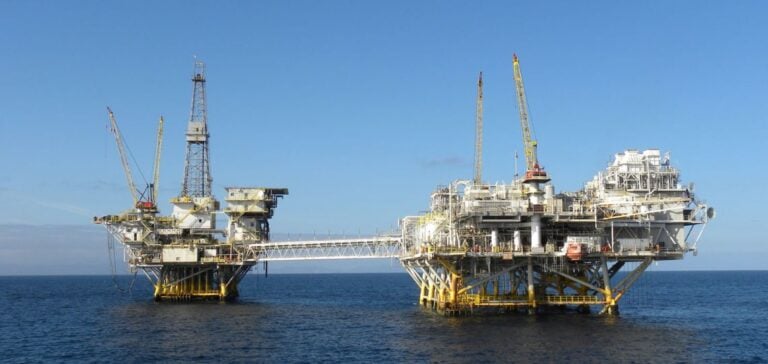Oil and gas producers in the Gulf of Mexico are bracing for major disruptions due to Tropical Storm Francine, which could become a Category 1 hurricane.
Chevron, ExxonMobil, Shell, and other companies have taken preventive measures by evacuating non-essential personnel from offshore platforms and temporarily suspending drilling activities.
ExxonMobil has already shut down its Hoover platform, located some 241 km from Corpus Christi, Texas, while Shell has halted drilling on its Perdido and Whale platforms.
These actions are aimed at limiting risks to personnel and infrastructure, as the storm threatens to hit key facilities, including those of Freeport LNG and other liquefied natural gas (LNG) exporters.
The storm’s potential impact on oil and gas infrastructure is significant.
The Gulf of Mexico area contributes around 15% of total US crude oil production and 2% of its natural gas production.
The fields in Francine’s path are estimated to account for around 125,000 barrels per day of oil production and 300 million cubic feet per day of natural gas, jeopardizing a significant part of the country’s energy supply.
Impact on energy markets
Francine’s threat has already had an immediate impact on the markets.
Crude oil prices rose by 1.6%, driven by fears of production and refining disruptions in the region.
Conversely, natural gas futures fell by 5% on expectations of lower demand, particularly if the storm disrupts LNG exports from the USA.
In the event of a prolonged outage, facilities such as Freeport LNG and Cheniere Energy could see their operations significantly impacted.
The ports of Corpus Christi, Freeport, and Galveston, Texas, have already implemented shipping restrictions, although some ports, such as Houston and New Orleans, are still open to marine traffic.
These restrictions have been imposed by the US Coast Guard to avoid incidents during the storm.
Meanwhile, the Louisiana Offshore Oil Port (LOOP), an essential deepwater port for crude oil imports, continues to operate normally, but is closely monitoring the situation.
Safety measures and local preparation
Local authorities and businesses in the region are stepping up their vigilance.
In Louisiana, Calcasieu Parish officials have distributed sandbags to help residents protect themselves from anticipated flooding.
In New Orleans, similar measures are being taken, and voluntary evacuations have already begun in Grand Isle.
The Texas power grid, which has been affected by previous weather events such as Hurricane Beryl, is also preparing to deal with potential local blackouts.
Energy companies such as BP and Occidental Petroleum are closely monitoring Francine’s progress and are ready to activate their contingency plans should the need arise.
LNG facilities, such as those operated by Freeport LNG, have already begun to take preventive measures, although details remain limited.
Strategic challenges for the energy sector
The arrival of Storm Francine highlights the ongoing challenges facing energy operators in the Gulf of Mexico.
Platforms such as Enchilada, Cerveza, Perdido, and Hoover, among others, could be directly affected if the storm follows its predicted path.
Industry players must constantly evaluate their strategies to ensure continuity of operations while minimizing risks.
This situation underlines the importance of energy infrastructure resilience in the face of increasingly frequent climatic events.
As companies and local authorities prepare for the immediate challenges posed by Francine, discussions around optimizing safety measures and managing climate risks are intensifying.
For the energy sector, these storms underline the importance of robust emergency plans and rapid adaptation to changing conditions.






















